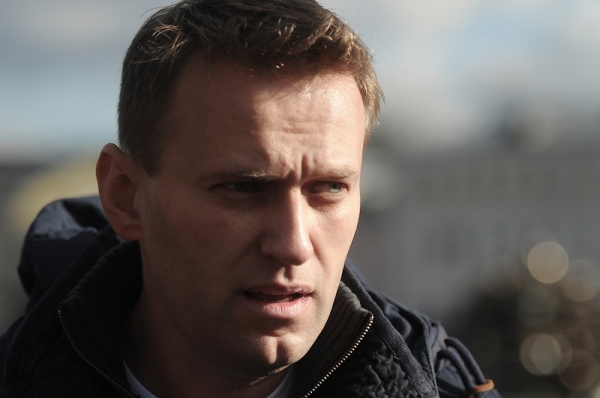New EU sanctions detail Putin’s ‘torture’ of Navalny
New EU sanctions due this week show how Russian president Vladimir Putin’s jailers tortured his biggest rival, Alexei Navalny.
"Injection [of prisoners] with unknown substances" was routinely practised in the "IK-3 Polar Wolf" penal colony, where Navalny suddenly died in February, according to a draft EU blacklist seen by EUobserver.
The word "torture" was used 47 times in the 28-page long EU charge-sheet, which envisages visa-bans and asset-freezes on 35 Russian prison chiefs and judges involved in Navalny’s incarceration, as well as two entities — the IK-3 and IK-6 prisons where he was held.
EU ambassadors aim to agree on the blacklist in Brussels on Wednesday (13 March), ahead of Russian presidential elections on Friday.
The list doesn’t mention Putin, even though the EU has squarely blamed the Russian leader for Navalny’s death in previous statements.
It also doesn’t say if Navalny was directly murdered or killed by harsh prison conditions.
But it shows the horrors that Putin’s services inflicted on his main opposition rival, despite the fact Navalny was an internationally acclaimed figure.
IK-3 "punishment" chief Yuri Konoveev and prison medical chief Alexei Lysuk, both of whom are being blacklisted, were "responsible for the health of Alexei Navalny from 25 December 2023 until his death", the EU document said.
Konoveev "ensured that a regime of maximum possible physical isolation was inflicted on Navalny".
He also oversaw Navalny’s interrogations and "the exercise yards where Alexei Navalny allegedly became ill on 16 February 2024", the EU said.
Meanwhile, Lysuk "neglected the dire conditions of Navalny, failed to ensure that his unit had adequate resuscitation capacities, and failed to transport him to the nearest hospital on time after he collapsed".
Navalny’s IK-3 prison regime included "deprivation of medical care, beatings, extensive periods of solitary confinement, deprivation of food" as well as "injection with unknown substances," the EU said.
It included "inhuman living conditions" and "withholding warm water and clothing in winter," when temperatures drop to minus-30 degrees Celsius outside in the Arctic region.
Navalny had also endured "months" of "punishment cells" in the IK-6 prison where he was earlier held, the EU noted.
"Valeriy Boyarinev [a federal-level prison chief — also blacklisted] personally gave the orders to limit the amount of food Navalny was allowed to buy during his stay in penal colony IK-6," the EU said.
And "three days after the death of Navalny in a penitentiary colony under his supervision, Boyarinev was promoted to major-general of internal service by [Putin’s] presidential decree," the EU added.
Putin’s spies first tried to kill Navalny with the Novichok nerve toxin in 2020, causing an international outcry.
They then arrested him in Moscow airport on 17 January 2021 the minute he landed, following medical treatment in Germany.
And the draft EU list told both a longer and wider story of the "torture, and other cruel, inhuman, or degrading treatment" meted out in Putin’s dungeons.
It named Viktor Gavrilov, a senior FSB intelligence officer, as having orchestrated Navalny’s airport arrest.
Other Russian officials deprived Navalny of contact with his family, his lawyers, and civilian doctors.
Some of Navalny’s prison bosses stood out for individual cruelty.
Blacklisted Russian prison official Sergey Moroz, for instance, the EU said: "exerted extreme humiliation and violence on detainees upon their arrival in detention".
Systematic abuse
But sadism was also official policy, the EU sanctions document indicated.
"Meetings between [Russian] governor [Dmitriy] Artykhov [also blacklisted] and the head of the penal system demonstrate an awareness and condonement of these practices by the regional government," the EU said.
There was "a widespread and systematic pattern of torture" in Russia’s jails, it added.
The EU sanctions also painted a picture of trials behind closed doors, withheld legal documents, verdicts issued in "five minutes", and witness intimidation in Putin’s judicial system.
The EU sanctions named three other high-profile Russian political prisoners — Lilia Chanysheva, Vladimir Kara-Murza, and Ilia Yashin — in passing.
Russian human-rights groups Memorial and OVD-Info estimate there are 680 to 1,140 people currently being detained for political reasons in Russia.

